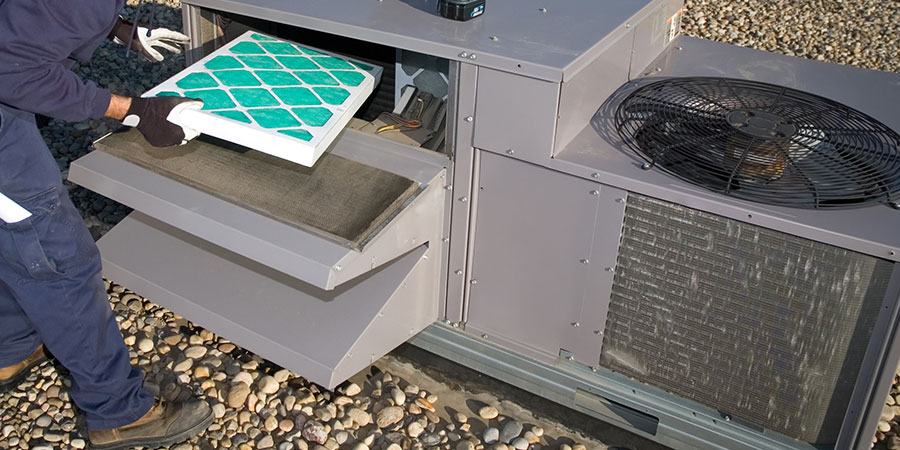If you are looking to buy a heat pump, there are several things you need to consider when purchasing. These things, as given by HVAC companies, include:
Age of your heating unit
Take stock of the heating unit already in your house and how old it is. If you know your furnace’s serial or model number, you can check online to determine if it’s nearing the end of its usable life.
You shouldn’t feel awful about replacing a gas or oil-burning appliance that is 10 to 20 years old.
After determining the age of your heating appliance, go to the critical next stage: make a plan.
It’s the most important thing you can do if you care about the climate. The reason for this is that the vast majority of HVAC replacements are unplanned.
Due to their popularity, heat pump systems are in great demand and frequently unavailable on short notice.
To ensure that you don’t spend some time in the cold, don’t wait until your existing system fails.
Begin planning as early as possible. Request a price quote for a new heat pump system.
When you have a plan, you can rest assured that you will not be left shivering in the middle of a winter evening.
Ensure your home is insulated.
If your house is poorly insulated, your pricey investment in a heat pump will go out the window, and you don’t want this, do you? Good insulation allows heat pumps to function at maximum efficiency by keeping a steady temperature, so you should ensure your home is properly insulated before installing the unit.
In optimal conditions, heat pumps can achieve a stunning 550 percent efficiency. Instead of burning a fuel like oil or natural gas to generate heat, they move it around by pumping a liquid that expands into a gas and compresses it back into a liquid.
Modern heat pumps can accomplish it in temperatures as low as -31 degrees Fahrenheit, making them the ideal units for ultra-low temperatures.
Before you head to the stores, examine your attic, walls, and common leaking spots. That should be enough to determine whether you have appropriate insulation or need to hire a professional.
Budget
You need to consider how much money you will spend on the heat pump.
A more helpful way to consider the cost is to compare heat pumps to the cost of replacing conventional heating systems.
After incentives, the difference might be small. However, the operational costs of a heat pump are cheaper, so you will save money in the long run. Based on National Renewable Energy Laboratory statistics, Carbon Switch estimates that heat pumps will save you a tidy sum per year on your power bill.
Some might argue that buying a heat pump is more expensive than any other heating unit, but this isn’t the case.
Viewing this as a purely financial transaction negates the primary reasons many individuals switch: comfort and health. Heat pumps win because they reduce hazardous emissions and maintain more stable temperatures.
You also get to use them even when the temperatures are too low.
Fortunately, practically every American is eligible for federal, state, and municipal government heat pump subsidies. So, even if you don’t have all the money upfront, you get subsidies, making it easy to afford the unit.
Financing
What is the best approach to financing your new system once you buy one? There are plenty of ways to go about it.
Of course, you can pay in cash, saving you money on interest. However, there may be more convenient or cost-effective options.
There are attractive loans available for energy efficiency projects, particularly from credit unions or state-run green banks, that you can go for.
Some companies lease heat pump equipment with a service contract for repairs and emergencies for up to 15 years at cheap monthly payments. Customers can upgrade, extend, purchase, or return the system.
If you feel this is the way to go, you should compare the terms of service and choose the best company.
Then there are those companies who will electrify your entire house. These work with local contractors to install new systems, lowering equipment costs, installation, and financing. Others finance home efficiency upgrades such as air sealing, insulation, HVAC, and smart home technologies and profit from the energy savings.
These are risk-free for owners because they only get money if energy savings occur.
Contractor
You don’t need to worry much about contractors, as many organizations link homeowners with contractors with heat pump experience.
While this is the case, it’s beneficial to shop around. You want a reputable contractor to help you install these systems. The contractors you hire will assist in bundling incentives and advise on supplementary home electrification services.
Besides the organizations that help homeowners find contractors, utilities, government agencies, charitable organizations, and even heat pump manufacturers have a list of contractors on hand, which you can look into.
Even if an organization recommends a contractor, don’t hire them blindly. Request references from previous customers from each contractor. Inquire with these references about their experiences with the contractor’s work.
If the contractor checks out, hire them; if they don’t, find another.
Once you’ve chosen a contractor, insist on a written contract including all project details. The scope of work, equipment specs, project timetable, payment schedule, and warranty information should all be included.
The purpose of doing this is to ensure that the contractor doesn’t go back on their word. It also ensures you get the service you deserve, as the contractor will be held accountable for their work.
Heat pumps aren’t cheap, so discuss the warranty and any warranties on the contractor’s work. Check to see what is covered and for how long.
It’s also wise to inquire about suggested heat pump maintenance and whether the heat pump repair Port Jefferson contractor provides the services.

